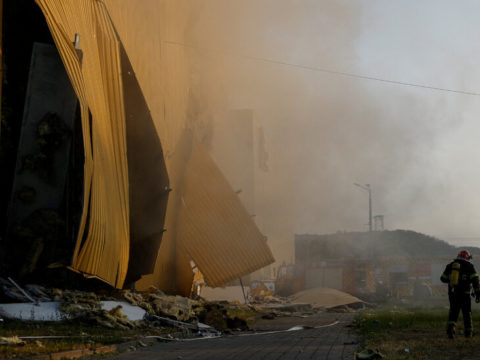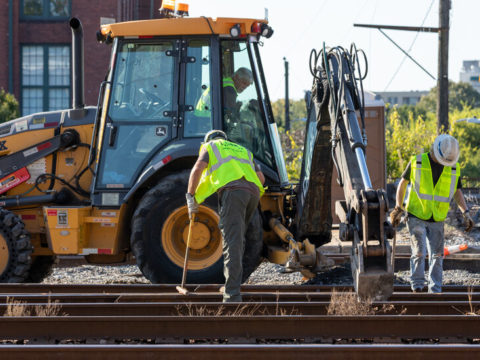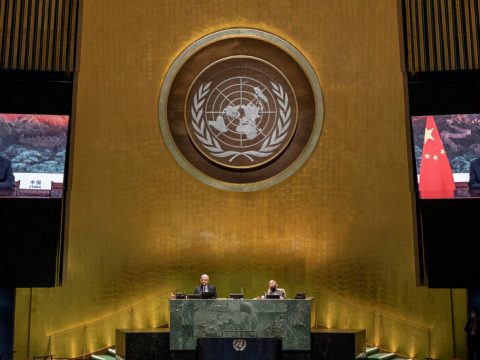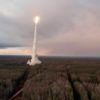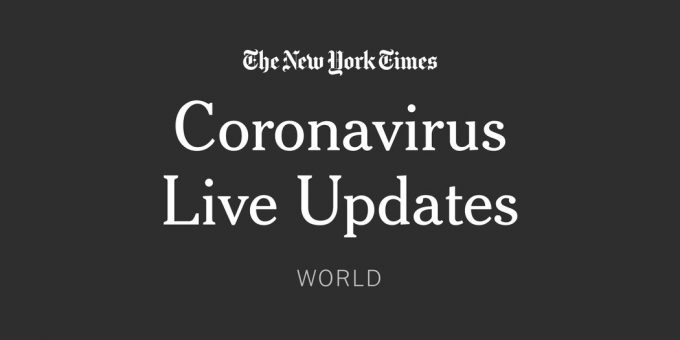
As U.S. infections reach another record, leaders seek new answers and itineraries.
As the United States headed into the Fourth of July weekend, officials were telling people to hold the partying until next year. The coronavirus has exploded in large parts of the nation: On Thursday, the U.S. set a single-day case record for the sixth time in nine days, with more than 50,000 new cases reported for the first time, according to a New York Times database. The figure topped 55,000 by the end of the day.
Thursday’s daily new case total represented an increase of more than 85 percent since two weeks ago, when states were reopening after extensive lockdowns tempered the outbreak, particularly in the hard-hit Northeast. Until last week, the country had not surpassed a record daily total for two months, since 36,738 new cases were reported on April 24.
In a reversal, Gov. Greg Abbott of Texas, one of the worst-hit states in the past week, on Thursday ordered residents in counties with more than 20 virus cases to wear masks in public.
Mr. Abbott, a Republican, had previously opposed attempts by Democratic mayors and other local officials to require everyone in their cities to wear masks in public. But as the number of cases increased in recent weeks, he cleared the way for local authorities to require masks in businesses, before imposing the more aggressive statewide requirement.
Mr. Pence had been scheduled to visit Arizona on Tuesday, but multiple factors related to the spread of the virus foiled those plans, according to a person familiar with Mr. Pence’s travel.
A swift rise in new cases in the state had overwhelmed testing centers in recent days, and Gov. Doug Ducey, a Republican, ordered bars, gyms and movie theaters closed this week. In an apparent acknowledgment of outbreaks erupting across the South and the West, the vice president canceled his plan to headline a “Faith in America” campaign rally in Tucson on Tuesday and then to tour Yuma with Mr. Ducey.
Instead, Mr. Pence opted for a shorter visit to Phoenix on Wednesday, where he participated in a public health briefing at Sky Harbor International Airport.
At least eight states reported single-day case records on Thursday: Alaska, Arkansas, California, Florida, Georgia, Montana, South Carolina and Tennessee.
Only a dozen states, mostly in the Northeast, have managed to keep new case levels flat or declining.
In Florida, Mayor Carlos A. Giménez of Miami-Dade County imposed a countywide curfew from 10 p.m. to 6 a.m., starting Friday. Miami-Dade and Broward counties had already announced they were closing beaches for the Fourth of July weekend.
“This is one of various actions I’m pursuing to tamp down this spike of Covid-19 and protect our residents,” Mr. Giménez said. He is also rolling back the opening of movie theaters, arcades, casinos, concert halls, bowling halls and adult entertainment venues that recently had their reopening plans approved by the county.
Boris Johnson, Britain’s prime minister, who said earlier this week that it was Britons’ “patriotic duty” to go to the pub when they reopen on Saturday, has now urged people not to “overdo it.” His warning came after tens of thousands have flocked to beaches, organized illegal music parties and violated social-distancing rules in recent weeks.
Britain has reported the world’s third-highest pandemic death toll, with triple-digit death counts still coming most days.
“Let’s not blow it now, folks,” Mr. Johnson told LBC radio on Friday, weeks after he announced that the country’s “long hibernation” was over and that the virus was under control. Restaurant industry workers have said in British news outlets that they were afraid of going back to work, and concerns are high that pub customers could flout basic rules and trigger new waves of infections.
On Wednesday, the Treasury tweeted that people should “grab a drink and raise a glass” when pubs reopen. The tweet was later deleted. A pub in south London has promised “endless supply” of drinks to “fuel your shenanigans,” after more than three months of closure, which was a first in the history of the country’s pubs.
Pubs — like restaurants, hair salons and other businesses welcoming visitors again on Saturday — will have to maintain a 21-day record of their customers, the government has said, to trace contacts in case of new outbreaks.
In Leicester, 100 miles north of London, pubs and other nonessential businesses will remain closed because of a regional outbreak of virus cases.
The British authorities also announced on Friday that, starting July 10, travelers from countries in Europe including France, Italy and Spain, will no longer have to self-quarantine for 14 days. The change will currently only apply to England, with Scotland, Wales and Northern Ireland expected to set up their own rules.
In other news around Europe:
-
Residents in nursing homes in Britain will be tested for the coronavirus monthly, while staff members will receive tests weekly, officials announced. According to a survey published on Friday by the Office for National Statistics, 56 percent of the country’s nursing homes have had at least one case since March, with 20 percent of residents in such facilities known to have been infected. Out of the nearly 44,000 reported deaths in Britain, at least 15,500 people have died in nursing homes.
-
Seeking to give his government a fresh start after the pandemic battered the nation, President Emmanuel Macron of France shuffled prime ministers on Friday, trading in the popular incumbent, Édouard Philippe, for a relatively unknown functionary who helped guide the country out of the health emergency, Jean Castex.
-
Austria recorded more than 100 new cases of the coronavirus on a single day this week, its highest such total in more than two months. Many of the confirmed infections are connected to a religious community in Linz, a city in the northern part of the country, and officials closed schools and day care centers in the area for a week. Austria’s health ministry has registered 17,959 cases of coronavirus infection and 705 deaths.
Identifying likely voters is a challenge for pollsters in every election. This year, the coronavirus, mail voting and a surge in political engagement may make it even harder than usual.
For now, former Vice President Joseph R. Biden Jr.’s nine-point lead across the critical battleground states is so significant that it is essentially invulnerable to assumptions about turnout, according to New York Times/Siena College surveys of the states likeliest to decide the election. But supporters of Mr. Biden, the presumptive Democratic nominee, are far more likely to be concerned about in-person voting during the pandemic, and his wide polling lead among registered voters could narrow if their concerns persist to the election.
Over all, one-quarter of registered voters in the battleground states said they would feel uncomfortable voting in person.
People were asked if they would feel uncomfortable voting in person if the election were held during the week they were interviewed in June. About 40 percent of Mr. Biden’s supporters said they would feel uncomfortable, compared with just 6 percent of President Trump’s supporters.
This political divide transcends demographics. A young Biden supporter in a rural area, for instance, would be likelier to feel uncomfortable voting than an older Trump supporter in a city, even though the health risk is probably quite low for the Biden voter and potentially quite significant for the Trump supporter.
Most of these voters would go to the polls anyway. But about one-quarter of the uncomfortable voters — or about 6 percent of the overall electorate — said they would feel too uncomfortable to vote in person if the election were held during the week they were interviewed. This includes 8 percent of all of Mr. Biden’s supporters in the battleground states, compared with fewer than 2 percent of Mr. Trump’s supporters.
It is important to emphasize that no-excuse absentee voting, in which any voter can request a mail ballot, is available in all six of the battleground states included in the Times/Siena data.
On Thursday, the Supreme Court blocked a trial judge’s order that would have made it easier for voters in three Alabama counties to use absentee ballots in this month’s primary runoff election.
The court’s brief, unsigned order gave no reasons, which is typical when it rules on emergency applications, and it said the order would remain in effect while appeals moved forward.
The court’s four more liberal members — Justices Ruth Bader Ginsburg, Stephen G. Breyer, Sonia Sotomayor and Elena Kagan — said they would have rejected Alabama’s request.
College students across the country have been warned that campus life will look dramatically different in the fall, with temperature checks at academic buildings, masks in half-empty lecture halls and maybe no football games.
What they might not expect: a lack of professors in the classroom.
Thousands of instructors at American colleges and universities have told administrators in recent days that they are unwilling to resume in-person classes because of the pandemic.
More than three-quarters of colleges and universities have decided students can return to campus this fall. But they face a growing faculty revolt.
“Until there’s a vaccine, I’m not setting foot on campus,” said Dana Ward, 70, an emeritus professor of political studies at Pitzer College in Claremont, Calif., who teaches a class in anarchist history and thought. “Going into the classroom is like playing Russian roulette.”
This comes as major outbreaks have hit college towns this summer, spread by partying students and practicing athletes.
In an indication of how fluid the situation is, the University of Southern California said on Wednesday that an “alarming spike” in coronavirus cases had prompted it to reverse an earlier decision to encourage attending classes in person.
With more than a month before campuses start reopening, it is hard to predict how many professors will refuse to teach face-to-face classes in the fall. But colleges and professors are planning ahead.
China appears to be downplaying expectations ahead of a planned trip next week by a World Health Organization team to the country to investigate the origins of the coronavirus outbreak.
Since the head of the W.H.O., Tedros Adhanom Ghebreyesus, announced the trip on Monday, several Chinese officials and experts have said that any investigation into the origins of the virus should not focus only on China.
“It does not matter which country the scientific identification work starts with, as long as it involves all related countries and is fairly conducted,” Zeng Guang, the chief epidemiologist for the Chinese Center for Disease Control and Prevention, told the state-run nationalist newspaper Global Times on Tuesday.
Wang Guangfa, a top government health adviser, told Global Times this week that the W.H.O. should also go to Spain. He cited a not-yet-published study by researchers at the University of Barcelona that suggests the coronavirus was present in Spain’s wastewater as early as March 2019.
Independent experts have said the study was flawed, and that other lines of evidence strongly suggest the virus emerged in China late last year.
The virus most likely originated in bats, but the path of transmission is still unknown. Experts say establishing that will be a crucial step in preventing future outbreaks.
The hunt for information has focused on Wuhan, the central Chinese city where the virus is believed to have first emerged, and specifically the Huanan Seafood Wholesale Market, which was said to have sold wildlife and had links to many of the country’s first reported cases.
Mike Ryan, head of the W.H.O.’s emergencies program, said on Wednesday that the agency would be sending two experts from Geneva to join its China team on next week’s trip. He said one would likely be an epidemiologist and the other an expert in animal health.
Dr. Ryan did not reveal which cities the team was planning to visit. He described it as a “scoping mission.”
Getting answers on the origins of the virus has become more difficult as the issue has become increasingly politicized. China has been on the defensive for months in response to growing criticism from the United States and other countries for its initial mishandling of the outbreak. Officials from both the United States and China have, without providing evidence, accused each other of intentionally releasing the virus.
But at a news briefing this week, a Chinese foreign ministry spokesman sounded a less-aggressive note.
“China has always believed that virus tracing is a scientific issue, and relevant research should be carried out by scientists and medical experts,” said Zhao Lijian, the spokesman, who in March promoted a theory that the U.S. Army purposely introduced the virus to China.
“China continues to support scientists from all over the world in conducting global scientific research on the source and spread of viruses,” he added.
Last week, I received an email from my children’s principal, sharing some of the first details about plans to reopen New York City schools this fall. The message explained that the city’s Department of Education, following federal guidelines, will require each student to have 65 square feet of classroom space. Not everyone will be allowed in the building at once. The upshot is that my children will be able to physically attend school one out of every three weeks.
At the same time, many adults — at least the lucky ones that have held onto their jobs — are supposed to be back at work as the economy reopens. What is confusing to me is that these two plans are moving forward apace without any consideration of the working parents who will be ground up in the gears when they collide.
Let me say the quiet part loud: In the Covid-19 economy, you’re allowed only a kid or a job.
How to have some socially distanced fun this weekend.
Leaders in many states are urging people to stay at home this holiday weekend. Here are some safe ideas for enjoying the Fourth of July holiday.
Reporting was contributed by Aurelien Breeden, Benedict Carey, Nate Cohn, Richard Fausset, J. David Goodman, Anemona Hartocollis, Annie Karni, Adam Liptak, David Montgomery, Adam Nossiter, Elian Peltier, Amy Qin, Christopher F. Schuetze, Mitch Smith and Sabrina Tavernise.

